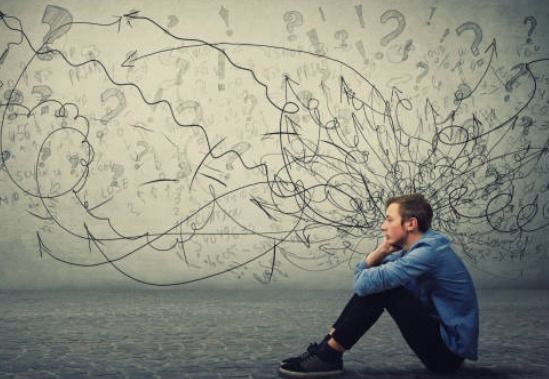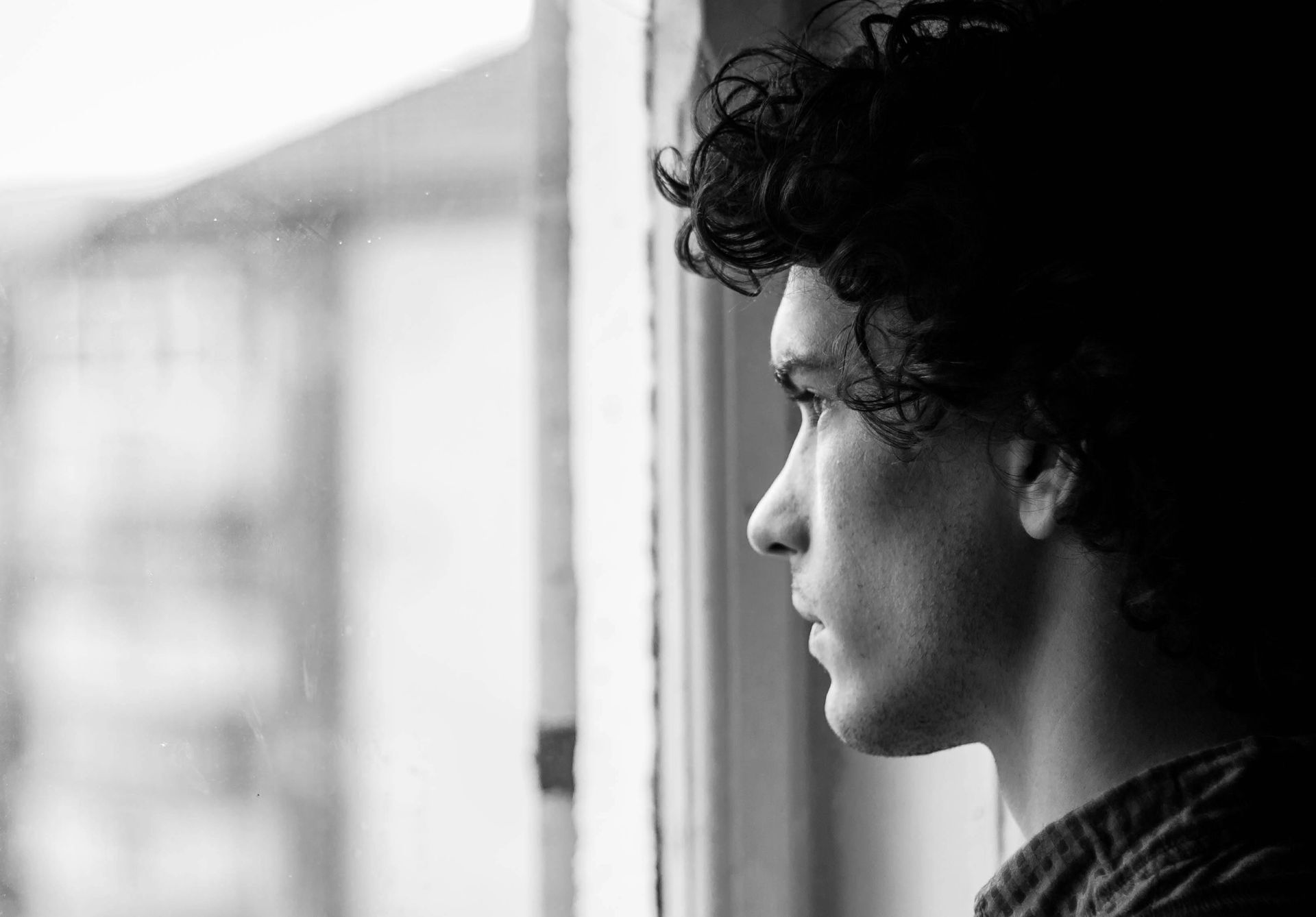
FIND ANXIETY RELIEF
Welcome to the first step in your journey towards managing anxiety.

What is Anxiety?
Everyone experiences some anxiety, but when people come to our practice, they are usually dealing with excessive worry, fear or feel a sense of unease about something with an uncertain outcome. This can begin to take over their life as it leads to either avoidance of triggers and scary situations or intense distress when needing to face them.
What does anxiety feel like?
People with anxiety often describe a sense of dread or fear. They are constantly ruminating and feeling overwhelmed by racing "worry thoughts" that just won’t go away no matter how hard they try. We call this the Vicious Cycle of Anxiety (Click here). They feel a persistent sense of uncertainty which leaves them exhausted and depleted, and despite their best efforts to escape worrying, it seems to follow them.
Anxiety is frequently accompanied by physical sensations such as a pounding heartbeat, shortness of breath, stomachaches, sweating, exhaustion, tightness in the chest and feeling uneasy or jittery. These thoughts and physical sensations are often really uncomfortable and overwhelming, and learning to manage them is a primary focus of treatment.
What are some common types of anxiety?
Here are a few subtypes of anxiety that we see frequently at the Anxiety & OCD Therapy Practice:
Generalized Anxiety Disorder
Involves excessive, uncontrollable worry about various aspects of daily life, such as work, health, or relationships. Symptoms include restlessness, fatigue, difficulty concentrating, and muscle tension.
What does Generalized Anxiety Disorder feel like?
People with Generalized anxiety disorder describe feeling "like they’re constantly worrying about everything, even the smallest things. It's like this persistent, nagging feeling that they can't shake off.
Their mind keeps racing with 'what if' scenarios and they can’t stop thinking about all the things that could go wrong. It makes it really hard to concentrate or relax.
Their heart often races, and they feel tense and on edge all the time. They feel so exhausted because this worry never goes away, no matter how hard they try to calm down. It’s like they’re always waiting for something bad to happen."
Panic Attacks
Are sudden, often unexpected episodes of intense fear or discomfort, often accompanied by physical symptoms like a pounding heart, shortness of breath, dizziness, and a feeling of losing control. Frequently there is an ongoing concern about having more panic attacks in the future.
What do Panic Attacks feel like?
People who experienced a panic attack describe feeling like "they’re suddenly hit with an intense wave of fear out of nowhere. Their heart starts pounding really fast, and it’s hard to catch their breath.
They feel dizzy, like they might faint. There's this overwhelming sense of doom, like something really bad is about to happen, but they can’t explain why. They start sweating and trembling, and their chest feels tight.
During an attack, it feels like they lose control of their body and mind, and they can't think straight. It’s terrifying and leaves them completely exhausted afterwards. What's even worse is they can never know when it will happen again..."People with Generalized anxiety disorder describe feeling "like they’re constantly worrying about everything, even the smallest things. It's like this persistent, nagging feeling that they can't shake off.
Social Anxiety Disorder
(Aka Social Phobia) is an intense fear of social situations where one might be judged or scrutinized by others. People with social anxiety might avoid social interactions or endure them with intense anxiety. Symptoms include blushing, sweating, trembling, and nausea.
What does Social Anxiety Disorder feel like?
People who have social anxiety describe "constantly feeling like people are judging them whenever they're in a social situation. It's as if they're under a microscope and everyone is scrutinizing their every move.
They become suddenly very aware of their hands, face, how they sound, etc. They get incredibly anxious at the thought of talking to others, especially strangers, and often feel their face getting hot and turning red. Their heart races, their hands get sweaty, and sometimes they even feel nauseous.
They usually avoid social gatherings and any situation where they might have to interact with others because the anxiety is just too overwhelming.
Specific Phobias
Are intense fears of particular objects or situations, such as dogs, spiders, blood, chemicals, heights, or flying.
People with specific phobias go to great lengths to avoid their triggers, which can significantly impact their daily lives.
What does a Specific Phobia feel like?
People who have a specific phobia describe feeling that they "have an intense, overwhelming fear whenever they see [the specific object or situation].
Even thinking about it makes their heart race and their palms sweat. If they know they're going to encounter it, they start to feel anxious days in advance. When they're actually faced with it, they feel like they can't breathe, their chest tightens, and they just want to run away. It's like an uncontrollable panic takes over their body and mind.
This fear is so intense that they go out of their way to avoid any situation where they might come across it."
Post-Traumatic Stress Disorder
PTSD can develop after experiencing or even witnessing a traumatic event. Symptoms include flashbacks, nightmares, intense anxiety and physical sensations, hypervigilance, and uncontrollable thoughts about the event. People might also avoid places or situations that remind them of the trauma.
What does Post-Traumatic Stress Disorder feel like?
People with PTSD describe feeling like they are "constantly on edge, like something bad is going to happen at any moment. They get these vivid flashbacks that make them feel like they're reliving the traumatic event all over again. It's terrifying and leaves them feeling helpless.
Nightmares haunt their sleep, and they wake up drenched in sweat. They avoid anything that reminds them of what happened, even if it means staying away from people and places they used to enjoy. Loud noises or sudden movements make them jump, and they can't shake this overwhelming sense of dread and anxiety. It's like their brain is stuck in survival mode, and they can't find a way to feel safe again".
Agoraphobia
Is an intense fear of situations where escape might be difficult or help may be unavailable during a panic attack.
This often leads people to avoid places or situations that might trigger this fear, such as crowded areas, public transportation, or being outside their home alone. It is often linked with panic disorder.
What does Agoraphobia feel like?
People with agoraphobia describe feeling "an intense fear whenever they think about leaving their house.
The idea of being in a crowded place or somewhere they can't easily escape from makes their heart race, and they start to sweat and feel dizzy. They constantly worry about having a panic attack and not being able to get help.
Because of this, they avoid public areas like malls, supermarkets, public transportation, and even open spaces where they might feel trapped. It’s like their world keeps shrinking, and they feel more and more isolated. They just can't shake the fear that something terrible will happen if they step outside"
Obsessive-Compulsive Disorder
was once considered an anxiety disorder but is now in a category of its own.
It is characterized by obsessions (intrusive thoughts) and compulsions (repetitive behaviors performed to reduce distress).
Please click here to visit our OCD page to learn more about how OCD can impact your life and how we can help.
Common Responses to Anxiety Triggers
People usually respond by trying to avoid, escape or resolve whatever worries them.
The problem is, although avoidance may work at times, people usually find that their world is getting smaller and many of the thing that they used to enjoy are now out of reach.
Reach out if you would like to get those things back!
Treatment for Anxiety
What does treatment for anxiety look like?
Fortunately, anxiety is highly treatable using the evidence-based strategies implemented at our practice.
We use cognitive behavioral therapy (CBT) and acceptance and commitment therapy
(ACT) to restructure your relationship to unwanted thoughts and physical sensations and exposure with response prevention (ERP) to gradually face fears and get your life back.
My ultimate goal is for you to learn the skills to fight your anxiety on your own so that you can become your own therapist. With the right strategies, you can get there!
Please reach out if you would like
to meet with an Anxiety/OCD specialist!
Interested to learn more? We’re here to help!
Interested to learn more? We’re here to help!
The Anxiety & OCD
Therapy Practice
We specialize in treating all forms of Anxiety, OCD & Misophonia
Find us on:
Psychology Today: https://www.psychologytoday.com/profile/1156406
Locations
New Hempstead, NY
Ramsey, NJ
Howell, NJ
Telehealth-Virtual
